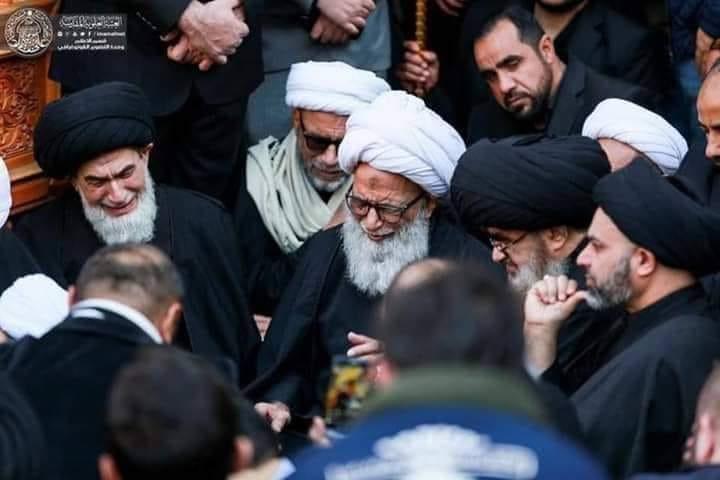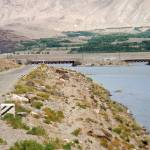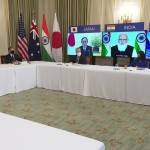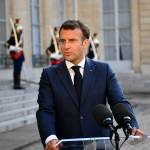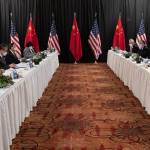Soleimani’s Death – Millions Call for Revenge as World Braces Itself For What’s Next
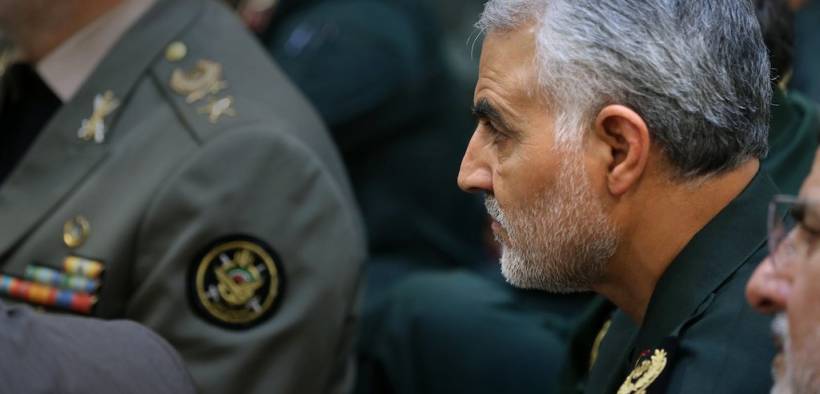
“Strategically …we are pouring gasoline on a smoldering fire with no structure or strategy for where we’re going to take this thing next.”
To the risk of contradicting U.S. Secretary of State Pompeo, Americans are not safer now that General Qassem Soleimani is dead. Whatever threat he may have posed while alive to the United States and, maybe more to the point, America’s military complex in the Middle East, pales in comparison to what President Donald Trump’s administration just brought upon itself and millions of Americans by ordering his murder.
“The risk of doing nothing was enormous. Intelligence community made that assessment and President Trump acted decisively last night,” Pompeo told CNN’s John Berman on Friday.
And yet … so far and across all political lines, all state officials, analysts, politicians, and academics have expressed not only concerns but fears that President Trump did not simply open Pandora’s box, but quite literally exploded it to smithereens.
“We have woken up to a more dangerous world,” said France’s Deputy Foreign Minister, Amélie de Montchalin. Russia, a key ally of Iran in the Middle East, blasted “an adventurist step that will increase tensions throughout the region.”
“What the Trump administration has done is rewrite the rules of engagement with Iran,” said Ellie Geranmayeh, a senior policy fellow at the European Council on Foreign Relations.
“Up until now, the military action on both sides had been mostly covert, without taking responsibility. But now the U.S. has gone ahead and publicly announced it assassinated one of the top figures in Iran’s political and military establishment,” Geranmayeh told media on Friday.
To put it mildly, President Trump really put his foot in it … and it is unlikely he and his administration have any real understanding of the chain reaction they just so carelessly put in motion. A few decades from now, historians might argue that Mr. Trump did everything in his power to destroy the United States and its standing in the international community.
Once feted as a beacon of freedom, decades of war-mongering, foreign meddling, military exceptionalism with a sprinkle of arrogance turned the U.S. into the biggest bully of them all – notwithstanding allegations that Washington is actually sowing terror as opposed to fighting it.
As Retired Admiral James Stavridis points out: “Strategically …we are pouring gasoline on a smoldering fire with no structure or strategy for where we’re going to take this thing next.”
To kill General Soleimani was as reckless as it was miscalculated since it equates to a declaration of war not just on Iran but the Shia Islamic world. To kill Abu Mahdi Al Mohendis, a man who is recognized across Iraq for his valor against ISIS, is to erase whatever upset Iraqis may have had towards Iran and convince millions that the real enemy lies not east of their borders, but west, where Liberty claims to shine brighter.
For lack of better words, I would say that President Trump single-handedly consolidated Iran’s influence in Iraq and beyond that, the region, by taking out the very man who inspired millions to fight back against Islamic radicalism. From Afghanistan to Yemen, Syria, Iraq and Lebanon, Gen. Soleimani remains a hero. Not even the Kingdom of Saudi Arabia could bring itself to fault the general, rather, Riyadh chose to keep mum in the face of the general’s death, for saying anything would be to provoke Iran beyond repair.
When the Kingdom, well-known for being at times rash in its decision and actions, acts with restraint, I would beg for others to exercise caution. Iran may be facing unprecedented pressure – both at home and abroad, due to the many sanctions the U.S. slapped on its institutions and economy – but it sits still a superpower not to underestimate.
Iran is home to over 80 million souls, that’s twice and more of Iraq’s population. As I recall, the U.S. has yet to leave Iraq’s war theater after President George W. Bush decided to preemptively strike at Terror.
Today millions across the region stand united in their mourning, calling for revenge. In Iraq, it is the whole of Shia Islam that came to pay its last respect to the two men they saw as holy warriors. Never has the Shia Muslim world come together before in such a strong show of solidarity.
Whatever divisions existed yesterday (and they were many and grave), whatever upsets or political differences may have prevented the ayatollahs from formulating a cohesive front has now melted away. With the death of Gen. Soleimani and Abu Mahdi Al Mohendis, they have all come as one to demand justice.
-
Photo courtesy of Imam Ali shrine in Najaf – Shia religious authorities gather in Najaf to mourn Gen. Soleimani and Al Mohendis
Again, and this needs to be highlighted, never in the history of Shia Islam (we are talking 15 centuries) have the religious authorities rallied together in such a show of force and solidarity. And since those clerics command well over 100 million souls across several continents, U.S. officials might wish to take a knee and think about their next move.
And while the White House has been keen to label the general a murderer and a terrorist, we may want to carefully consider the context of such hatred. I would caution against the use of labels when the U.S. has long colored outside the lines of the legal and the tolerable. American history is peppered with acts other nations may feel equate to acts of terrorism after all.
Yes, Soleimani was an enemy of the United States, but America long declared war on his country. His actions ought to be looked through the lens of U.S. military interventionism.
Actions have consequences, and for the White House to argue revenge as a policy is quite frankly irresponsible if one keeps in mind the tens of thousands of troops currently posted in the Greater Middle East, and what widespread popular anger could mean for them.
So what comes next? I would say fire and brimstone …
In truth the real threat America faces today might not come from Iran at all, but rather a regional popular uprising against U.S. imperialism. Looking at the sea of people who took to the streets of Iraq, India, Lebanon, Syria and Yemen to condemn Trump’s actions I would say that America just bought itself a fresh batch of enemies with little hope of making new friends.
In the following video mourners in Najaf are crying: “America is the greatest devil of all.” The chant has since been repeated across several countries in the region, including Iran. No other act in the history of the region has united communities in such a dramatic way – to stay fearful of the future today is not paranoia, but rather lucidity in the face of political madness.
To be a friend of the U.S. today may prove too costly even for “friendly” Arab states … and then what President Trump? How exactly is that making anyone safer?


